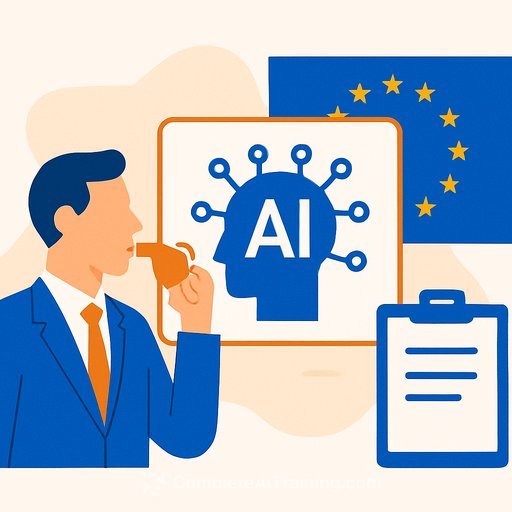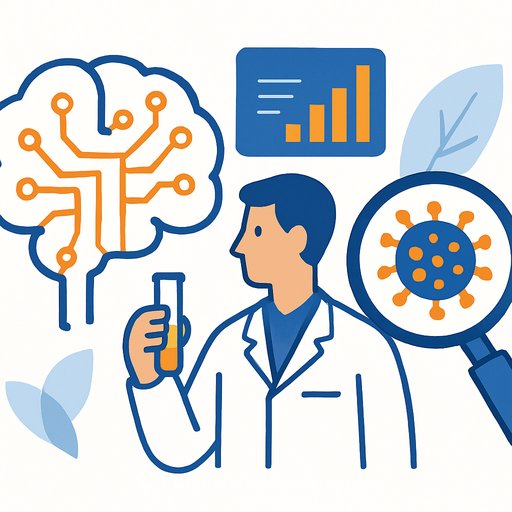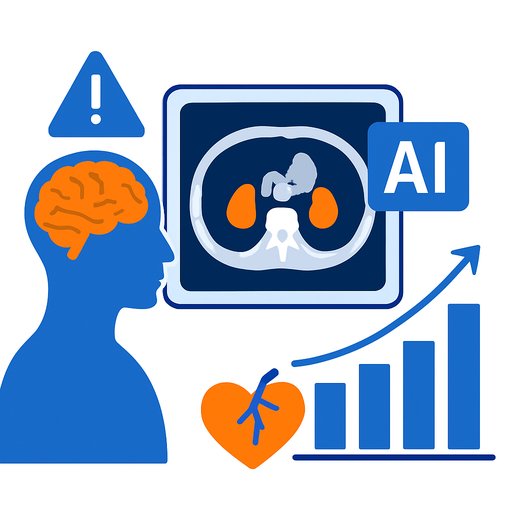EU weighs whistleblowing channel for AI misuse in research - welcomed, with warnings
The European Commission is exploring a formal mechanism for researchers to report the misuse of AI in science. Options include an independent EU body or a dedicated contact point to handle whistleblowing cases. The move follows a new strategy to promote AI in scientific research across Europe.
Right now, there is no EU-level channel researchers can trust for sensitive AI concerns. That gap raises the odds that harmful applications slip by and erodes trust in the research ecosystem.
What's on the table
- Set up a whistleblowing mechanism for AI misuse in research, potentially via an independent EU body or contact point.
- Align codes of conduct for AI in research across the EU: ethics, transparency, IP, data protection, and data governance.
- Include non-binding EU-wide principles and harmonised guidelines in the upcoming ERA Act (planned for 2026).
Why it matters to researchers
- Many researchers lack a trusted, secure route to flag unethical or harmful AI use.
- Requirements for AI-related proposals differ widely across member states and institutions.
- Inconsistent expectations create compliance friction and can slow legitimate work.
Supportive, but cautious on the vehicle
The research community broadly supports clearer rules. Rúben Castro from the Coimbra Group called it a step forward but questioned whether the ERA Act is the right instrument at this stage. The message: the policy tool matters as much as the intent.
Coimbra director Emmanuelle Gardan stressed co-design with universities from day one. The mechanism should reflect real lab workflows and respect the diversity of research cultures across Europe.
Protecting research from political interference
Julien Chicot of the Guild of European Research-Intensive Universities warned about the risk of politicisation, citing the rise of anti-science rhetoric. He argued any whistleblowing system should be researcher-led and embedded in a broader scientific process that safeguards quality and integrity. Otherwise, academic freedom could face pressure.
Integrity first, compliance second
Mattias Björnmalm of Cesaer urged a foundation built on research integrity: reliability, honesty, respect, and accountability. Box-ticking won't prevent misuse; culture and institutional leadership will.
Before legislating: align what already exists
Both Castro and Gardan said the EU should map and harmonise institutional, national, and EU approaches first. That reduces duplication and prevents conflicting obligations for scientists.
- Respect subsidiarity: EU measures should complement, enhance, and link to current ethics and integrity bodies - not replace them.
- Integrate with data protection and IP frameworks so researchers aren't stuck reconciling competing rules.
Practical steps for research leaders now
- Audit your AI-in-research policies against ethics, transparency, data protection, and provenance standards.
- Create an internal, confidential channel for AI-related concerns; define escalation paths and timelines.
- Document AI use in proposals and publications: model lineage, datasets, prompts, human oversight, and limitations.
- Coordinate with research integrity offices, DPOs, and IRBs to avoid double work and policy conflicts.
- Engage early with EU consultations to shape workable guidelines, and prepare to align institutional codes with EU principles.
Context and next steps
The Commission plans to present the ERA Act in 2026, with a likely emphasis on harmonised, non-binding guidance. Researchers can anticipate stronger expectations on transparency, data governance, and responsible AI practices, alongside a safer channel to raise concerns.
For background on the European Research Area, see the Commission's ERA policy page here. For the broader regulatory context on AI, refer to the EU AI Act on EUR-Lex here.
Your membership also unlocks:






